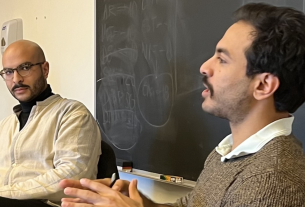6 years into the Rohingya refugee crisis, nearly 1 million Rohingya remain stranded in Cox’s Bazar of Bangladesh, their plight far from over.
With few employment opportunities and their movement restricted, the Rohingya in the camps have no other means to support themselves, relying solely on humanitarian assistance.
Since 2017, the EU has contributed over €50 million in funding towards WFP’s emergency operations, including the food assistance lifeline that the entire Rohingya population has been counting on to meet their basic food and nutrition needs.
As their vulnerability deepens amidst the global food, the fuel crisis and rising domestic inflation and dwindling foreign reserves, this lifeline has been under serious threat due to funding shortfalls.
In March, WFP was forced to reduce the food voucher value from US$12 to US$10 per person per month. The Rohingya families spent Ramadan and Eid coping with the reduced food assistance. Then a large fire broke out in the camps, destroying shelters, along with health and nutrition centres, leaving nearly 20,000 people homeless overnight.
Then on 14 May, Cyclone Mocha, the strongest storm to strike the Bay of Bengal in over a decade, hit the camps. Heavy rains and winds triggered flash floods and landslides, washing away roads and damaging shelters. Some 15,000 children were affected with their learning centres damaged.
While the needs are rising, the funding gap persists. With over €50 million remaining unfunded, the food assistance programme will soon be cut again, from US$10 to US$ 8 per person per month starting in June 2023.
With already high levels of hunger and malnutrition, the repercussions of another ration cut will be devastating. Not only will it impact nutrition, but education, protection and safety and security, as parents may withdraw their children from school and let them work, offer their daughters to early marriage and risk their lives to leave the camps.
Below is a collection of some of the Rohingya men, women and children we met in recent months, who opened up to our partner WFP about their struggles to make ends meet. Here are their words.
“We are managing with very little food, insufficient food. My children cry for more food, but how can we manage the food if we cannot afford it?” Arofa says following the ration cut. With a compromised diet, the repercussions will be dire for children.
© WFP/Nihab Rahman
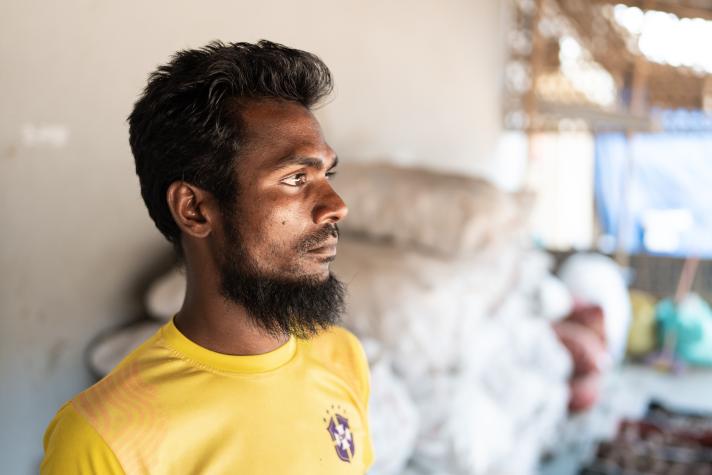
Barely reeling from the impacts of the previous ration cut, Shamsu is worried there might be further cuts. In an attempt to somehow survive with the decreased ration, he is having to sacrifice his meal to feed his children.
© WFP/Nihab Rahman
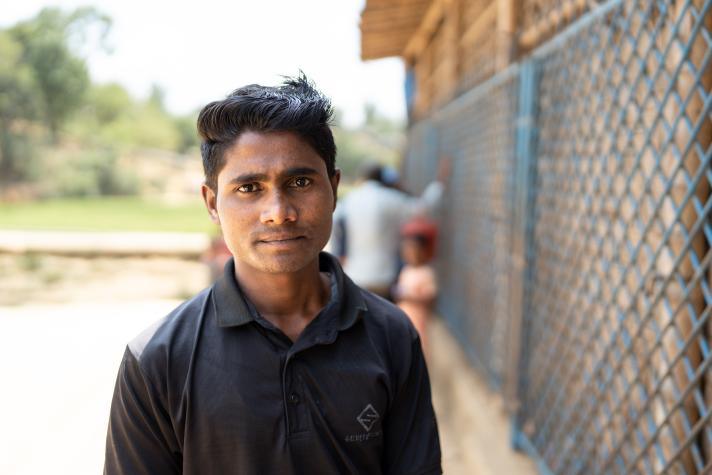
“We cannot eat fully. We have to eat half of what we did before,” said Yasin, 20, one of the Rohingya refugees receiving food assistance from WFP.
© WFP/Nihab Rahman
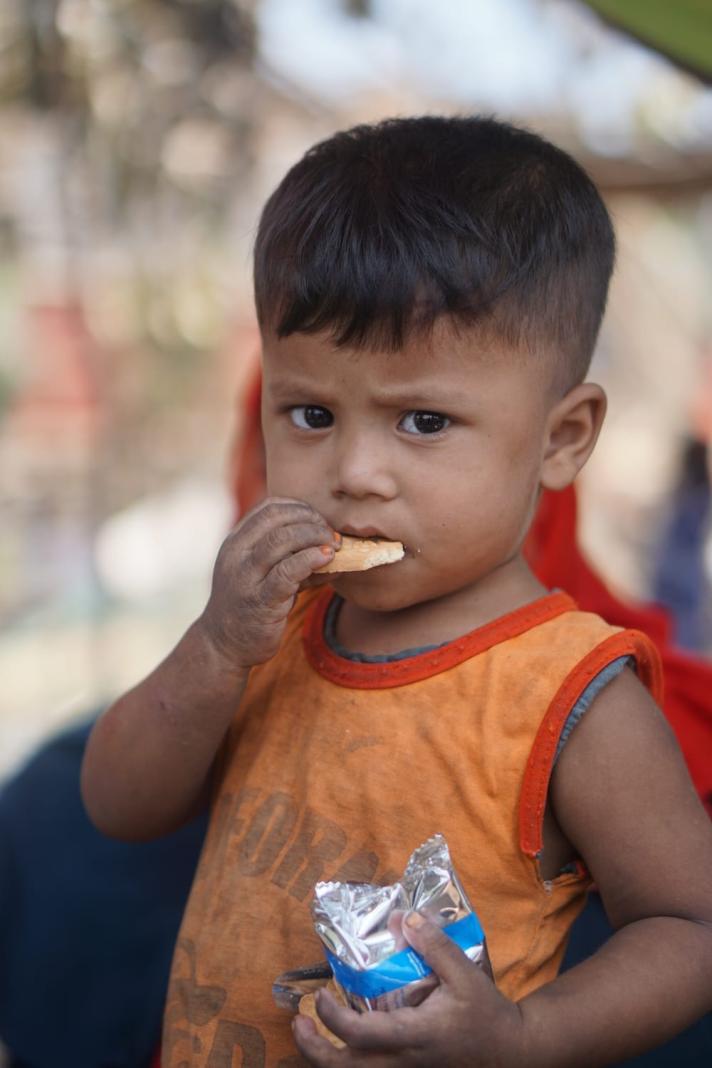
Whenever a fire breaks out, our partner WFP provides immediate food assistance including fortified biscuits, hot meals and dry food rations to help those affected. Over the past 2 years, there were over 220 fires recorded in the camps in Cox’s Bazar.
© WFP/Nayeem Sobhan
Kulsuma lives with her husband Mohammad Amin and 4 children in the Rohingya camps. With EU-supported vouchers, families like Kulsuma’s can redeem food items of their choice at WFP outlets.
© Sayed Asif Mahmud
The repercussions of WFP’s ration cut will be felt particularly hard by children like them. Even before the ration cut in March, 12% of children were acutely malnourished and 41% of children were chronically malnourished.
© Sayed Asif Mahmud
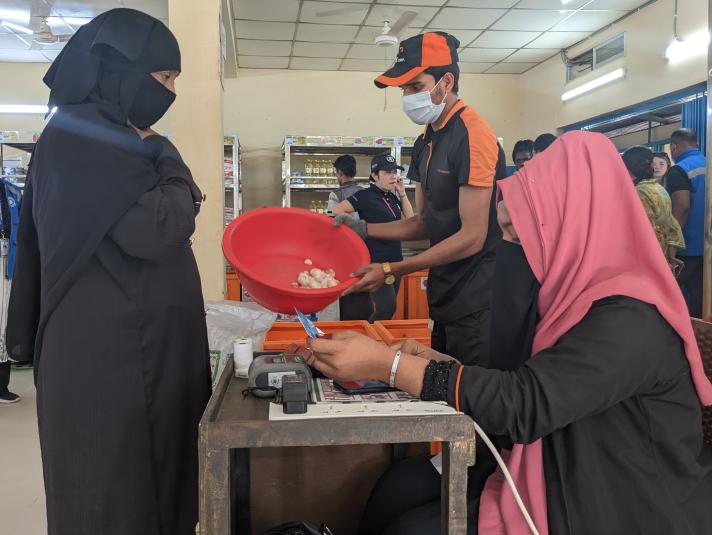
“I am happy about WFP’s food voucher system,” said Alamara, a resident in the Rohingya camps. With our support, WFP has transformed the way refugees receive food, as it offers them a chance to choose which food to buy rather than being handed out.
© WFP/ Lena von Zabern
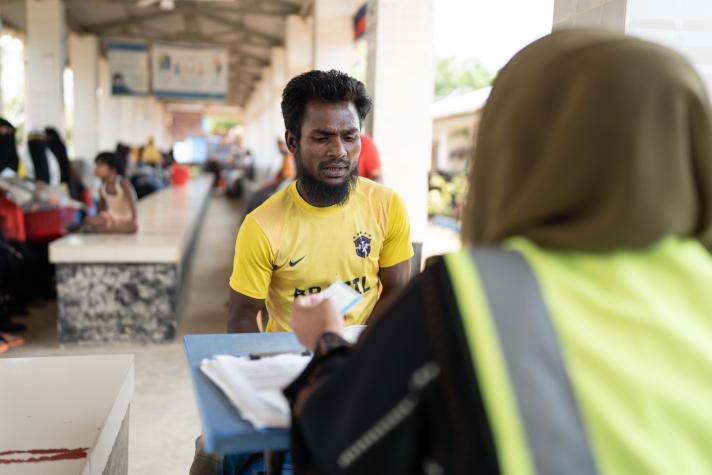
“It’s a big problem. It’s bigger than any other problem. We cannot eat properly,” said Shamsu. Already living in high levels of vulnerability, food insecurity and malnutrition rates, the aftermath of the reduced ration has been far-reaching.
© WFP/Nihab Rahman
Abdullah met with an accident a year ago and his leg had to be amputated. He wants to receive a prosthetic leg so that he can start working again. But that comes second to his other wish – to educate his children and feed them well.
© WFP/Saikat Mojumder
Senoara Begum, 9 months pregnant, and her 4 children inside their bamboo home in the camps. Her husband abandoned her and remarried. Cyclone Mocha hit her hard, destroying her vegetable garden and uprooting her banana tree.
© WFP/Saikat Mojumder
Story and photos by the World Food Programme.
Publication date: 16/06/2023


